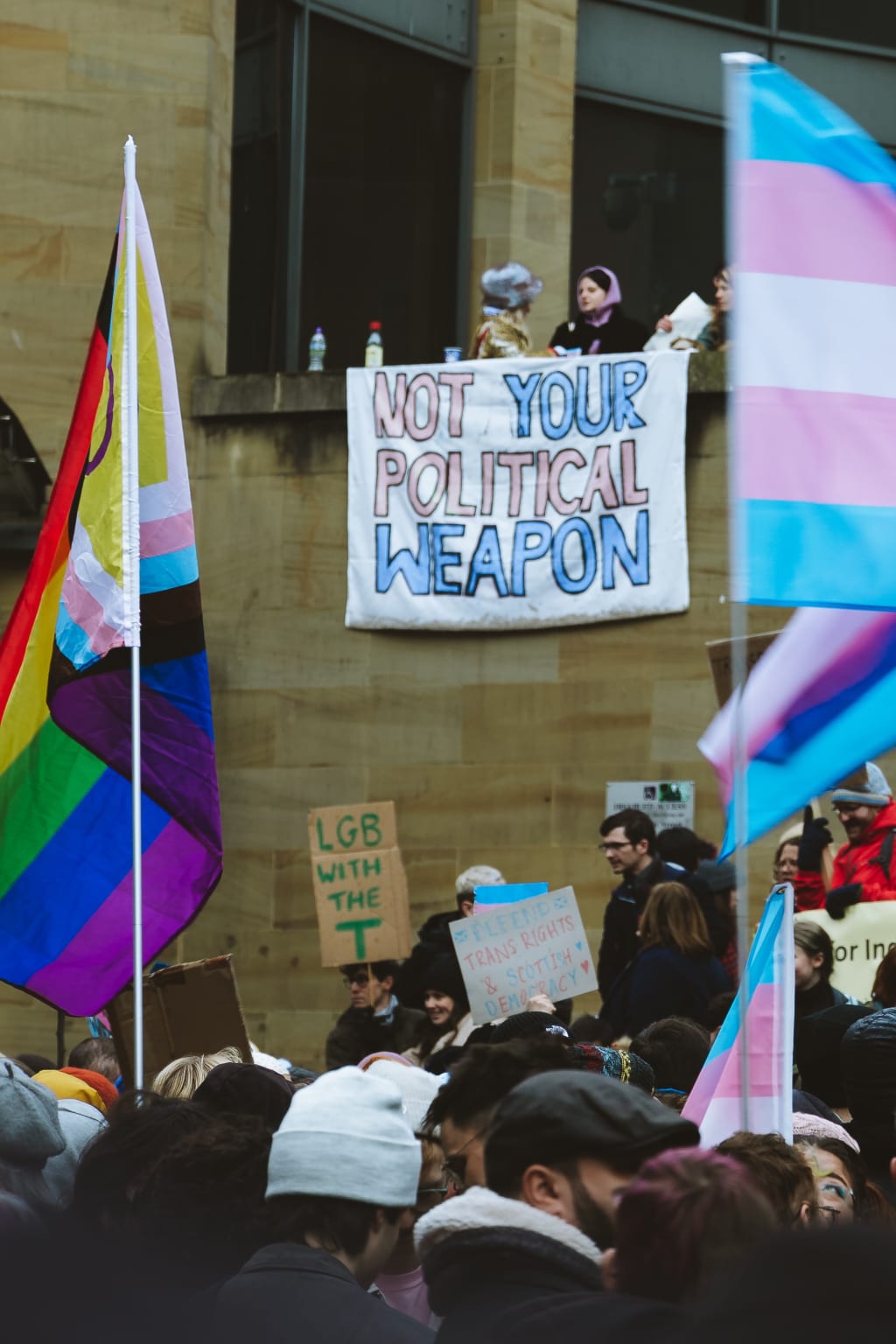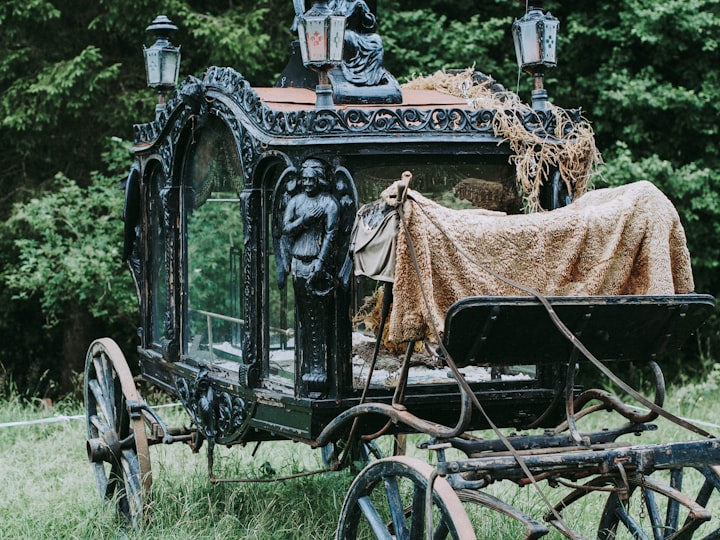
It’s hard when your name doesn’t match your face.
The lady at the vital records office was bewildered when I showed up wanting a copy of my (female) birth certificate with only a male ID and a pile of court documents to prove my identity. No amount of explaining could clarify the situation. After a half an hour of repeating that I needed a copy of the original certificate so I could change back my name I had tears in my eyes, but she remained convinced I was a trans woman trying to somehow game the system. Six weeks later, I received a stern letter telling me the office couldn’t change the name on the certificate — something I’d never asked to do — without a “compliance stamp”. At this point, I’d already found the original and changed the name, spending $300 to undo what I’d done with such hope a few years before. Sometimes it seems like the misunderstandings, and suspicion, never end.
After about a year and half off T, countless rounds of home laser and wax, the hairs on my chin are finally giving up the fight. On principle, I don’t really mind them, but the overall look isn’t for me. I have nothing but admiration for those who rock the juxtaposition of feminine face and chin scruff. I do still enjoy petting the light sideburns I kept as a souvenir. I’m a detransitioner. I don’t speak for all of us, of course. The takeaways from a there-and-back-again gender odyssey vary as much as experiences with gender themselves. Still, if I may weigh in, I’d like to make the case for freedom.
I never felt like a woman, or, to be honest, like a man. When my rambunctiousness got me labeled ‘problem child’ while my male classmates received a chuckle and a ‘boys will be boys’, I felt jealous. When I learned my crushes on boys were socially approved, but crushes on girls were seen as dirty and deviant, I unconsciously narrowed my sexuality and, with it, my self-image. I was not the hero, Aragorn or Indiana Jones. I was the manic pixie dream girl. I made it work. When my stepfather waved away my offer of help with the broken washing machine, saying he’d wait for my cis male partner because “it needs two people”, a rage lodged in my throat that is still there. I knew there was no point in trying to convince the old man that I, who single-handedly built the house’s addition, counted as a person.
Encountering the trans community was profoundly healing for me. I was older than most, and these kids’ insistence that gender was an identity, not a shackle to be grudgingly accepted, was a revelation. Still, my first reaction was anger. Womanhood was forced on me - was, in many ways, a tangible obstacle to my goals, a burden I bore. It was more than just makeup or lumps on my chest, it was the expectation to work a second unpaid shift, to do everything backward in heels, to ‘smile!’ and appease the guys on the corner as I walked down the street, mind a thousand miles away. For all the time I would spend among those who said “TERFs are worse than Nazis”, I never stopped understanding them on some level. Trans women never deserved their scapegoating and hate, but to tell any AFAB person — or anyone, perhaps — they have chosen their assigned gender is tone-deaf at best. In a world that sorts us into two tiny boxes based on the width of our hips and squareness of our jaws, can we assume that anyone really chose?
The logic was simple, back then. If you think you might be trans, you definitely aren’t cis. If you don’t feel like a woman, you must be a man. It was a young movement, and didn’t have much nuance. Be that as it may, I found that thinking of myself as a man was liberating. Driving back from the clinic with my prescription for testosterone, I felt as though I could fly. I can still see the fields rolling away under the summer sun, and feel the exhilaration. It seemed as though my life could finally begin.
I wasn’t wrong. In retrospect, I’d already made the move that changed everything: I’d declared myself to be something other than what I was told to be. Finally, in my 30s, I’d recognized myself as the authority in my own life, and my feelings and values as a worthy basis for decisions. That recognition stayed with me, and grew, through all the lessons I’ve learned since: that manhood is its own kind of shackle. That my body, eventually, couldn’t handle added testosterone and stay healthy. That, most importantly, freedom comes from within. It needs no external approval, no ‘compliance stamp’. Not fitting the mold is awkward, but it won’t kill me. It won’t even maim my soul, the way decades of trying to fit it tends to do.
“But,” I hear you say, “you were in your 30s. I’m concerned about the children.” Medical transition for children is not a thing, and the medical choices of well-informed young adults are between them and their doctors, not you and me. When it comes to the clothing children wear, the names they use, the options they are taught exist, openness is what will protect them. The thing is, “if you think you’re trans, you’re not cis” isn’t entirely wrong. When we feel drawn to explore beyond gender roles, we’re hearing the voice of the self, calling us toward wholeness. The same voice that led me to hormones and a name change also stopped me from getting surgery, and, ultimately, led me back again — stronger, more fully myself. As in other areas of life, the danger comes when children, and adults, are taught that their options are few, and their feelings should be ignored. Teaching children they don’t have to kiss their uncle, teaching them they don’t have to (but can) wear a dress — both reinforce the same inner strength.
This is just one person’s story. It’s not for me to say who anyone else is, how they should relate to their own body, or how they should navigate the cumbersome gender roles the world still insists on hanging round our necks. We all have a natural right to define, and redefine, ourselves. It goes hand in hand with our bodily integrity, with the validity of our emotions and lived experience, with the rights to organize, to strike, to set our own boundaries. And, like these rights, as some begin to flex them, others, used to control, start to panic. Those who deny their own freedom can’t abide the freedom of others. The inmates keep the system going: the women who police each others’ chin hairs, the men who measure dicks. We all find ourselves here in a body. What that means to us, how we interpret, clothe, and shape our bodies, is deeply personal. The more we all recognize that truth, the more society as a whole can heal.





Comments (1)
Well done for writing this. A great article!